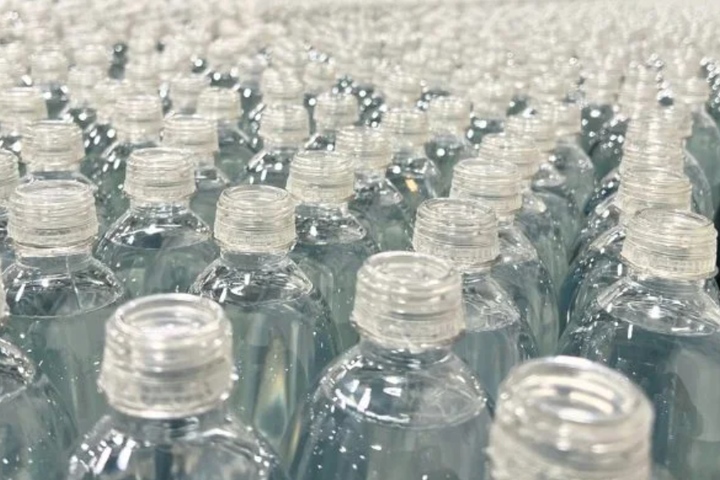ORIGIN MATERIALS
First-time production of PET bottle closures / Biopolymers company moves into processing
By Plasteurope.com staff
US-based Origin Materials (West Sacramento, California; www.originmaterials.com) said it aims to start producing PET closures “on an industrial scale” before the end of the fourth quarter of this year. The firm did not provide any details about the planned production volume in response to a Plasteurope.com query.
US-based Origin Materials (West Sacramento, California; www.originmaterials.com) said it aims to start producing PET closures “on an industrial scale” before the end of the fourth quarter of this year. The firm did not provide any details about the planned production volume in response to a Plasteurope.com query.
 The partners aim to start producing PET bottles and closures on an industrial scale before Q4 this year (Photo: Business Wire/Origin Materials) |
Accompanying the projects to set up the production line are packaging specialist PackSys Global (Rüti, Switzerland; www.packsysglobal.com/en), which is part of the Brückner group, and IMDvista (Brügg, Switzerland; www.imdvista.ch), which is specialised among other things in preform inspection.
“Together we are doing something nobody has done before: we are building the world’s first commercial-scale PET cap and closure manufacturing system,” said Origin co-CEO and co-founder John Bissell.
The closures for carbonated soft drinks, which fit on the widespread PCO 1881 bottleneck, can, according to Origin Materials, be produced from either fossil raw material, from PET recyclate, or from bio-based PET.
In a next step, there will also be the so-called tethered cap variants, in which the cap remains connected via a thin plastic thread even after the bottle has been opened. “Cap tethering mandates are coming into effect later this year in Europe through the EU Single-Use Plastic Directive. Further mandates are anticipated around the world,” said Bissell.
Related: TotalEnergies launches HDPE that enables downgauging for tethered caps
The cooperation was announced only a few weeks ago at the North American plastics trade fair, NPE (www.npe.org).
Origin Materials, which was founded in 2008, pursues the objective of converting wood residues into sustainable intermediate products, among other things for the production of bio-based PET. For this purpose, it developed a platform technology, which was upscaled for the first time last year: since October 2023, in the so-called Origin 1 plant at its Canadian site in Sarnia, Ontario, C6 cellulose obtained from wood chips and shavings is converted in a chemo-catalytic step into four isolated chemical substances.
Furan accounts for the majority of the production, in addition to HTC, oils, and extracts. These intermediate products of biomass are, according to Origin Materials, carbon-negative. No figures were given regarding the production capacity of the Canadian plant.
— Translated by Jon Relton
07.06.2024 Plasteurope.com [255273-0]
Published on 07.06.2024

 German version of this article...
German version of this article...